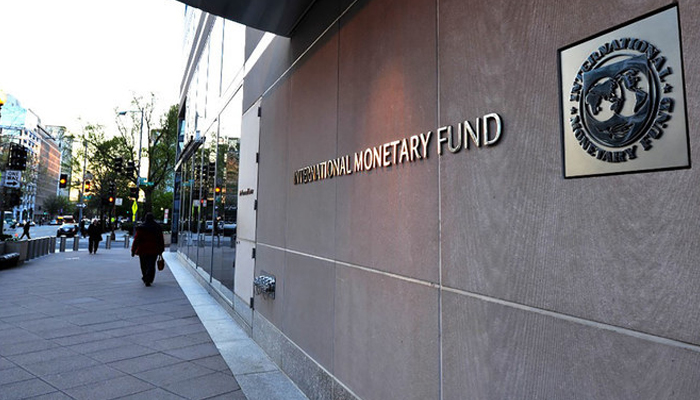Fixing the loopholes
The IMF has released its technical assessment report titled ‘Public Investment Management Assessment’ (PIMA), evaluating Pakistan’s development framework.
It has concluded that the country’s Public Sector Development Program (PSDP) is in need of reassessment as the average project completion time stands at 14.1 years.
Thus the Rs727 billion allocated in 2022 for the PSDP will now require Rs10.7 trillion to complete the already sanctioned projects. According to the Planning Commission, however, a typical project requires two–three times its estimated cost.
Cost and schedule overruns in infrastructure and defence projects was a global phenomenon for decades, mainly because of lack of tools and techniques to provide early warning about cost and schedule overruns. Current project monitoring and evaluation tools lack this ability, thus corrective action cannot be taken in time.
Faced with undesirable delays and cost overruns particularly in defence projects, the US replaced the 60-year-old project/programme evaluation and review technique (PERT) with a new programme/project management concept known as earned value project management (EVPM).
The EVPM, which is based on statistical principles and has now been made mandatory for all infrastructure and defence projects/programmes in the US and the EU, allows prediction about cost and schedule within 20 percent of project time. Thus, for a five-year project, fairly accurate cost and schedule estimates can be made within 12 months of the project’s initiation. There are other over half a dozen indices indicating the project’s health within 20 per cent of project’s time.
Thus, there is ample time to take remedial measures to keep the project on track. All present project management monitoring tools lack this vital ability.
In August 2008 when the EVPM was being adopted as a project tool worldwide, the Planning Commission released ‘Guidelines for Project Management’. This detailed document referred to use of project monitoring and evaluation software (PMES) and emphasized on results based management (RBM). There was no mention of EVPM concepts.
Fifteen years later, the IMF is now pointing out the almost non-affordable PSDP in terms of cost and schedule overruns.
In Pakistan, the EVPM was introduced by various management training institutions using the software ‘Primavera’. The EVPM was, however, never taken seriously as a subject by colleges, universities, the Planning Commission, the PEC, or the HEC.
This neglect has resulted in the waste of billions of rupees in public-sector projects, besides denying the public at large timely benefits of their tax money.
It is time the IMF report be taken seriously; it should form the basis of immediate reforms in subjects of management sciences in universities. There should be the mandatory adoption of the EVPM for all major projects including infrastructure and defence industry.
Let’s not waste time disputing the IMF report, fixing blame, justifying cost overruns and inordinate delays and finding an ad-hoc solution. Billions of rupees have already gone down the drain. Let us adopt tools and techniques which have been successfully implemented the world over with excellent results. The EVPM not only ensures completion of projects on time and within budget, but people also start receiving the benefits of their taxes in the shortest possible time.
The writer is a freelance contributor and can be reached at: miansalimuddin@gmail.com
-
 Bridgerton’s Michelle Mao On Facing Backlash As Season Four Antagonist
Bridgerton’s Michelle Mao On Facing Backlash As Season Four Antagonist -
 King Charles Gets New ‘secret Weapon’ After Andrew Messes Up
King Charles Gets New ‘secret Weapon’ After Andrew Messes Up -
 Shia LaBeouf Makes Bold Claim About Homosexuals In First Interview After Mardi Gras Arrest
Shia LaBeouf Makes Bold Claim About Homosexuals In First Interview After Mardi Gras Arrest -
 Princess Beatrice, Eugenie ‘strained’ As They Are ‘not Turning Back’ On Andrew
Princess Beatrice, Eugenie ‘strained’ As They Are ‘not Turning Back’ On Andrew -
 Benny Blanco Addresses ‘dirty Feet’ Backlash After Podcast Moment Sparks Online Frenzy
Benny Blanco Addresses ‘dirty Feet’ Backlash After Podcast Moment Sparks Online Frenzy -
 Sarah Ferguson Unusual Trait That Confused Royal Expert
Sarah Ferguson Unusual Trait That Confused Royal Expert -
 Prince William, Kate Middleton Left Sarah Ferguson Feeling 'worthless'
Prince William, Kate Middleton Left Sarah Ferguson Feeling 'worthless' -
 Ben Affleck Focused On 'real Prize,' Stability After Jennifer Garner Speaks About Co Parenting Mechanics
Ben Affleck Focused On 'real Prize,' Stability After Jennifer Garner Speaks About Co Parenting Mechanics -
 Luke Grimes Reveals Hilarious Reason His Baby Can't Stop Laughing At Him
Luke Grimes Reveals Hilarious Reason His Baby Can't Stop Laughing At Him -
 Why Kate Middleton, Prince William Opt For ‘show Stopping Style’
Why Kate Middleton, Prince William Opt For ‘show Stopping Style’ -
 Here's Why Leonardo DiCaprio Will Not Attend This Year's 'Actors Award' Despite Major Nomination
Here's Why Leonardo DiCaprio Will Not Attend This Year's 'Actors Award' Despite Major Nomination -
 Ethan Hawke Reflects On Hollywood Success As Fifth Oscar Nomination Arrives
Ethan Hawke Reflects On Hollywood Success As Fifth Oscar Nomination Arrives -
 Tom Cruise Feeling Down In The Dumps Post A Series Of Failed Romances: Report
Tom Cruise Feeling Down In The Dumps Post A Series Of Failed Romances: Report -
 'The Pitt' Producer Reveals Why He Was Nervous For The New Ep Of Season Two
'The Pitt' Producer Reveals Why He Was Nervous For The New Ep Of Season Two -
 Maggie Gyllenhaal Gets Honest About Being Jealous Of Jake Gyllenhaal
Maggie Gyllenhaal Gets Honest About Being Jealous Of Jake Gyllenhaal -
 'Bridgerton' Star Luke Thompson Gets Honest About Season Five
'Bridgerton' Star Luke Thompson Gets Honest About Season Five




